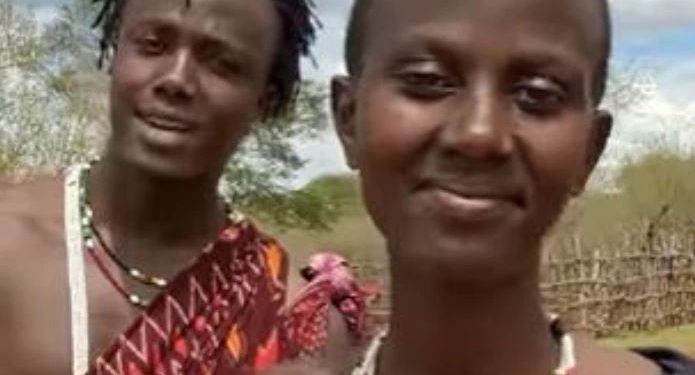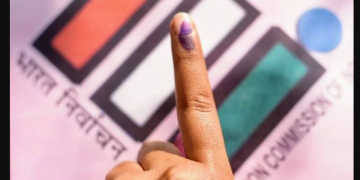New Delhi: Prime Minister Narendra Modi Sunday called upon youngsters to make videos of famous Indian songs in different languages that will not only make them popular but also showcase the country’s diversity to the new generation.
Modi praised Tanzanian siblings Kili Paul and Neema who, he said, have created ripples on social media by lip-syncing several Indian songs, including the country’s national anthem on Republic Day.
In his monthly Mann Ki Baat broadcast, Prime Minister Modi highlighted a number of issues, including the cases of triple talaq going down by over 80 percent following a law banning the practice, and also urged people to develop scientific temperament among children.
Even after 75 years of Independence, there are people who have dilemmas and reservations regarding their language, dress, food and drink, whereas it is not like this anywhere else in the world, Modi said.
People should speak their language with pride, he said, adding India is incomparable in its richness of languages.
Noting that India recently got back an ancient idol that was stolen from Bihar a few years back, from Italy, he said a big rise in the number of smuggled precious Indian idols being brought back to India since his government came to power in 2014 shows how the world has begun to view the country differently.
He said, “Till 2013, nearly 13 idols had been brought back to India. But, in the last seven years, India has successfully brought back more than 200 precious idols.”
With the International Mother Language Day being observed recently, Modi referred to Tanzanian Kili Paul and his sister Neema and spoke of their passion for Indian songs, including their tribute to legendary singer Lata Mangeshkar.
“As a part of Azadi Ka Amrit Mahotsav, youth can make videos of popular songs of Indian languages in their own way,” he said, adding that people of one state making videos with songs of another state will make them experience “Ek Bharat, Shreshtha Bharat” (One India, great India).
“I would emphasise about mother tongue that as our mother moulds our life, in the same manner, mother tongue also shapes our life.
“The mother and mother tongue, both together strengthen the foundation of life, lending it permanence. Just like we cannot abandon our mother, similarly, we cannot leave our mother tongue either,” Modi said.
The world’s oldest language Tamil is in India and every Indian should be proud of this significant heritage, he said.
In the same way, many ancient scriptures have found expression in Sanskrit.
The people of India are proud to be associated with 121 forms of mother tongues and 14 of these languages are spoken by more than one crore people in everyday life, the prime minister said, adding that the total population of many European countries is less than this number.
“In 2019, Hindi was ranked third among the most spoken languages of the world. Every Indian should be proud of this too. Language is not just a medium of expression, but also serves to preserve the culture and heritage of the society,” the prime minister said.
“Mother tongues have their own science. For understanding this science, emphasis has been laid on studies in the local language in the National Education Policy. Efforts are being made that our professional courses are also taught in the regional languages,” he said.
In the address, Modi also shared the story of former Kenyan prime minister Raila Odinga’s daughter Rosemary whose vision was restored to a great extent with Ayurvedic treatment.
Odinga was emotional while sharing this story with him, he said, adding that lakhs of people across the world are reaping similar benefits from Ayurveda.
Prince Charles from Britain is also one of the big admirers of Ayurveda, he added.
“In the last seven years, a lot of attention has been paid to the promotion of Ayurveda in the country.
“The formation of the Ministry of AYUSH has further strengthened our resolve to popularise our traditional methods of medicine and health. I am very happy that in the last few years many new start-ups have emerged in the field of Ayurveda,” Modi said.
“The Ayush start-up challenge is a great effort to support entrepreneurship in Ayurveda and related sectors. I urge youngsters in the world of start-ups and innovation to take part in it,” he said.
Noting that International Women’s Day will be celebrated on March 8, he said Indian women are dispelling old myths and are reaching newer heights from Parliament to Panchayat.
In the Army too, they are now undertaking responsibilities in new and bigger roles, he said, adding that women also flew modern fighter planes on Republic Day.
The country is trying to give equal rights to sons and daughters by fixing a common age for marriage, he said, adding that their participation in different fields has increased due to various initiatives, including “Beti bachao, beti padhao” and triple talaq legislation.
“A social evil like triple talaq is also coming to an end. Ever since the law against triple talaq has come into being, there has been a reduction of 80 percent in triple talaq cases in the country.
“How are all these changes happening in such a short time? This change is coming because women themselves are now leading the change and progressive efforts in our country,” he said.
With the National Science Day on February 28, he urged parents to work towards developing a scientific temperament in their children.
The prime minister also urged people to celebrate coming festivals like Shivratri and Holi by going “Vocal for local” and buying local products.
He asked them to continue to take precautions related to COVID-19.
The prime minister highlighted and praised cleanliness and environmental works in places like Kokrajhar in Assam, Visakhapatnam (Andhra Pradesh), Sawai Madhopur (Rajasthan) and Srinagar (J-K).
PTI






































